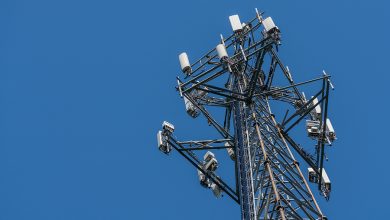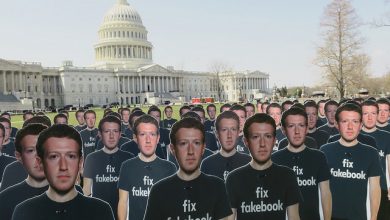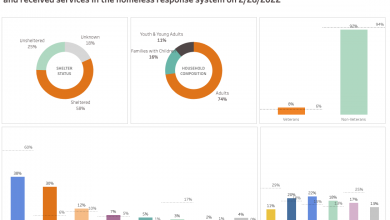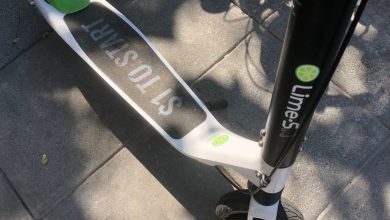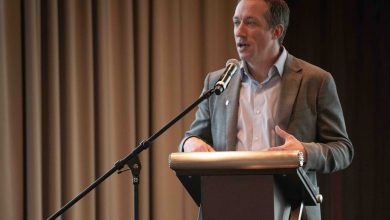What Biden’s infrastructure plan means for Washington state’s public broadband crusade
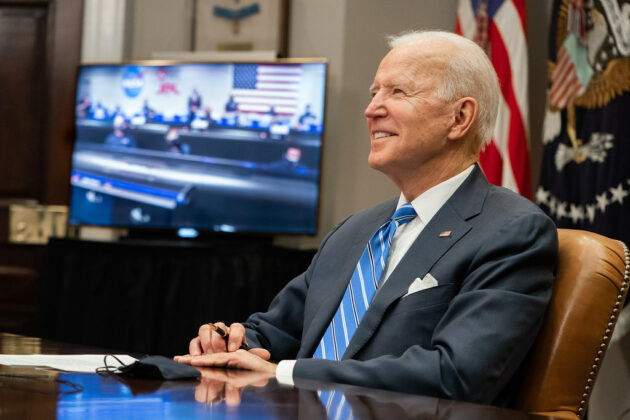
A years-long campaign to turn internet service into a public utility in Washington state could get a big boost from President Joe Biden’s massive infrastructure plan.
The proposal Biden unveiled last week pledges to spend $100 billion to make broadband internet service available and affordable to all Americans. The legislation “prioritizes support for broadband networks owned, operated by, or affiliated with local governments, non-profits, and co-operatives — providers with less pressure to turn profits and with a commitment to serving entire communities.”
That’s music to the ears of advocates who have been fighting for public broadband in Washington state since the Obama administration. Despite those efforts, only a few outlying cities in Washington have managed to move forward with government-operated internet service due to a lack of funding and complex regulatory hurdles.
Biden’s infrastructure plan — coupled with state-level efforts this legislative session — could finally make public broadband an option for many Washington residents.
Broadband is infrastructure.
— President Biden (@POTUS) April 5, 2021
Public broadband’s slow start
It’s estimated that 21-42 million Americans do not have access to any broadband internet service. The low-end estimate, which the Federal Communications Commission uses, relies on self-reported data from internet providers. Outside research has found the number of underserved Americans to be much higher.
The largest service gaps sprawl across rural America but Washington’s fight for public broadband actually originates in some of its most populous cities, where many don’t have reliable internet despite the presence of internet service providers.
In 2015, the City of Seattle published a study on the feasibility of building a municipal broadband network. To the dismay of advocacy groups like Upgrade Seattle, the city concluded public broadband would not be financially viable without outside funding.
Seattle also tried to partner with Cincinnati-based Gigabit Squared in 2013 after the company said it would bring gigabit Internet to thousands of Seattle residents. But that grand vision crumbled after Gigabit failed to raise enough money to implement a high-speed Internet network in 14 Seattle neighborhoods using the city’s dormant dark fiber network.
Scattered attempts in other Washington cities have had mixed results. Tacoma Public Utilities ran into financial trouble over the years it operated an internet service called Click! Network. The utility is now in the process of transferring operational control of Click! over to a private company.
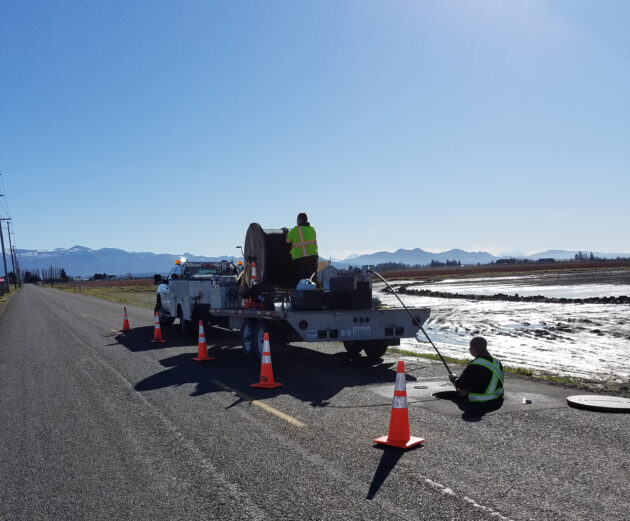
The island town of Anacortes, Wash., appears to be better positioned for success with its broadband network, but the program is still in its infancy.
“Anacortes has been keeping its eye on the variety of potential federal broadband funding opportunities, but it’s probably a bit too early to tell whether or not any dollars might make their way through to our broadband project,” said Jim Lemberg, manager of the program.
While Anacortes waits to see what happens with Biden’s plan, the city has secured other forms of federal funding and relies on revenue from subscriptions. The city’s internet provider is serving an initial 650 customers with a waitlist of just over 1,300.
Democrats push for high-speed solutions
At the state level, lawmakers are working to remove barriers that make it difficult for local governments to sell internet service to residents. Two bills working their way through the state legislature would allow small towns to provide internet service directly to customers and authorize ports and public utilities to sell broadband service.
There is some overlap between Washington state’s bills and the federal infrastructure plan. Biden, for example, also pledges to remove barriers that make it difficult for government-operated broadband networks to compete with private providers.
If both the state and federal plans are adopted, they could pave the way for municipal broadband projects across the state and provide the funding to build out costly internet infrastructure.
Laura Loe is executive director of Share The Cities, a nonprofit whose Upgrade King County working group advocates for municipal broadband. She said the combined efforts at the local and federal level present “a once in a generation opportunity for public entities to receive public funding.”
“Even partial funding for a pilot program for the parts of Seattle with the worst service, would be a great step forward and would help many Seattle families,” she said.
Still, it’s unclear how much of the federal infrastructure budget will go to cities with existing providers when so much of rural America has none.
The road ahead
Conditions are ripe for an overhaul of America’s internet infrastructure. The pandemic made internet access even more critical than before for students and workers relegated to their homes. It exposed deep inequities and opportunity gaps across the country. Meanwhile, local efforts like those in Washington state are pushing public internet forward.
“The last year made painfully clear the cost of these disparities, particularly for students who struggled to connect while learning remotely, compounding learning loss and social isolation for those students,” the White House said in a fact sheet on the infrastructure plan.
But those forces don’t guarantee an easy victory for Biden or public internet advocates. The cable internet industry is resisting Biden’s plan, calling it unnecessary and overreaching.
“The White House has elected to go big on broadband infrastructure, but it risks taking a serious wrong turn in discarding decades of successful policy by suggesting that the government is better suited than private-sector technologists to build and operate the internet,” said Michael Powell, president of NCTA — which lobbies on behalf of dozens of internet and cable corporations — in a statement.
While the Washington state bills appear likely to pass in some form, the federal infrastructure plan faces a less certain future.
Republicans are mounting a staunch opposition to the bill, which could force Biden to abandon his bipartisan goals. The president hoped to snag some votes from across the aisle but if that becomes impossible, he could still push the bill through the Senate with a simple majority using the same legislative mechanism that allowed his COVID relief bill to pass. If the Biden administration opts for that route, the infrastructure bill will likely need to scale back its ambitions.
Conclusion: So above is the What Biden’s infrastructure plan means for Washington state’s public broadband crusade article. Hopefully with this article you can help you in life, always follow and read our good articles on the website: Ngoinhanho101.com

